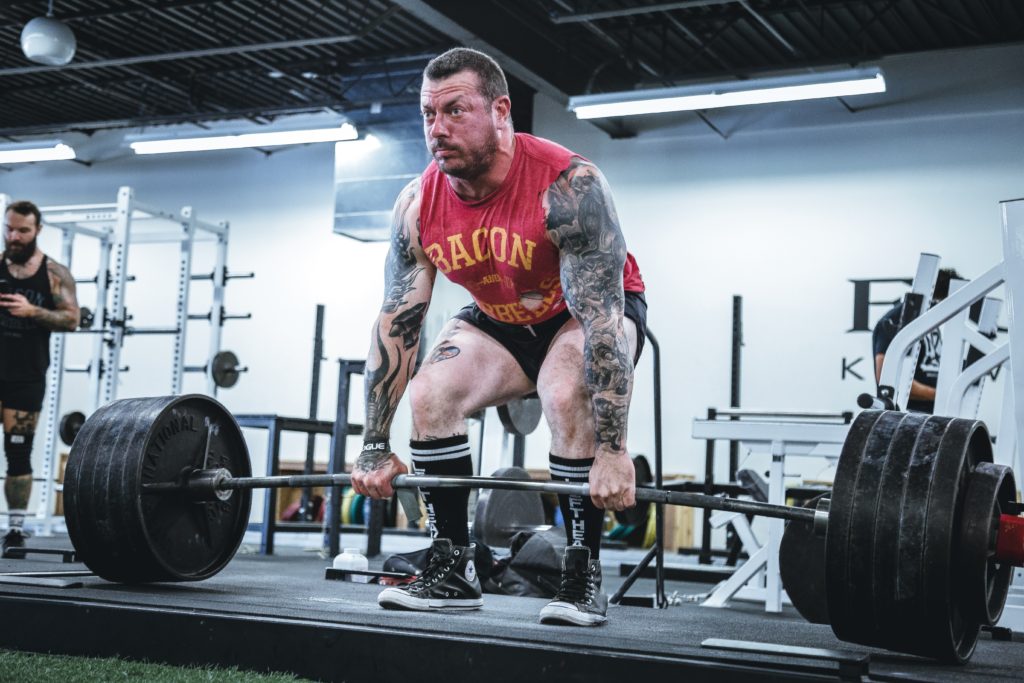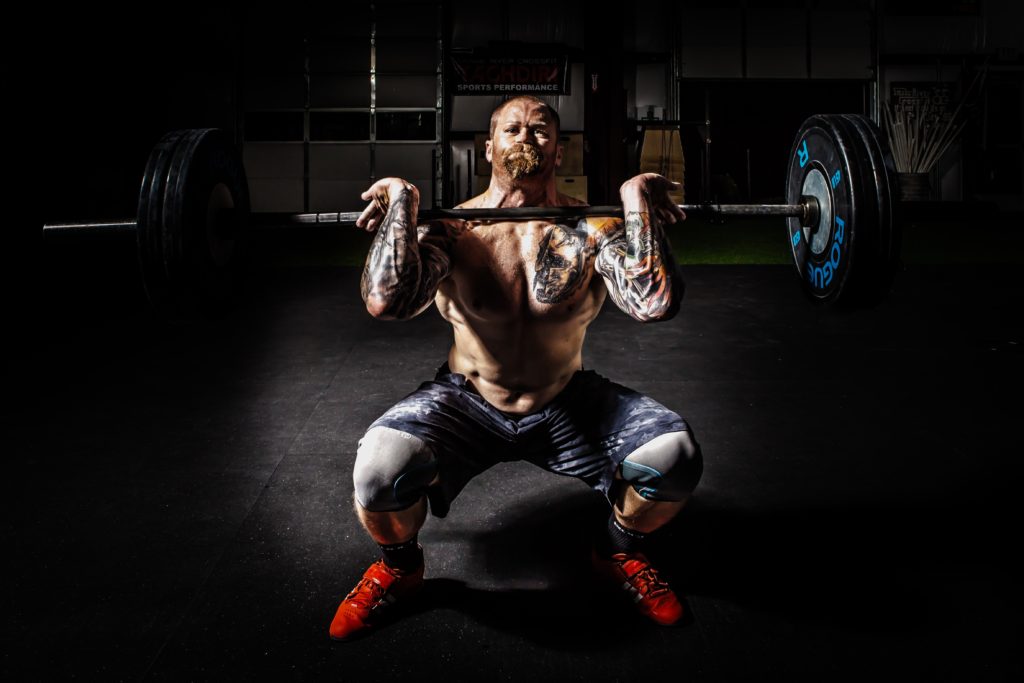What are Assistance Exercises
Assistance exercises are exercises that are done to help build your main lifts, whatever they may be. There are several names used for these including supplemental exercises, accessory lifts, auxiliary lifts etc but they all refer to similar things.
If you’re a competitive powerlifter your main lifts are the barbell back squat, flat bench press and conventional deadlift. Assistance exercises for these include paused squat or leg press for the barbell back squat. Close grip bench press or weighted dips for the flat bench press. Deficit deadlifts or back extensions for the deadlift.
If you’re a recreational lifter that wants to get stronger and/or more muscular or someone who competes in another strength sport your main lifts will be different. Therefore your assistance exercises will probably be different too.
Assistance exercises are often done for volume after the main lift. They can be done on a secondary/tertiary day after that days primary lift or even as the primary exercise on that day.
Mindset for Assistance exercises
It may seem like common sense that you should take these exercises just as seriously as you take your main lifts. But it’s amazing how many people will half ass or even skip assistance exercises when they’re not feeling up to it.
There’s no data to support this that I’m aware of. But if we could look at average long term progress between people who take their assistance exercise more seriously and those who don’t, I’m certain that on average the former would be noticeably further ahead.

This isn’t only due to the direct effect that skipping assistance exercises has but also the difference in mentality that this shows. This mentality will manifest itself in other areas such as diet, sleep and stress management that also affect training progression to a large extent. You can’t complain about not making good gains if you’re not even adhering to the program properly. This includes training hard.
I’m not a powerlifter or a bodybuilder. I don’t think lifters who train and don’t compete in anything (aka most lifters) should be in a rush to label themselves. My training is probably more similar to the way that most powerlifters train however it does seem that bodybuilders tend to have a better mentality towards this than powerlifters.
Powerlifters seem to place decreasing importance on things later in the workout, thinking of them as “nice to haves”. Again this doesn’t apply in all cases but on average this is what I’ve noticed.
Of course not everything is equally important but having the mentality that it is will get you further.
A lot of powerlifters are notoriously bad when it comes to this, taking their main lifts very seriously and then just going through the motion with assistance work or skipping things entirely. Probably because they’ve been at the gym for 3 hours already and have taken unnecessary 5 min rests between warm up sets while they scroll through Instagram (not even judging, I’ve done this in the past too).
I’m not saying this because I dislike powerlifting. I could potentially see myself competing in a powerlifting meet some day whereas I have no interest in doing a bodybuilding show. This is just something I’ve observed from real life gym experience and heavily consuming fitness content for almost a decade now.
Strategies to Improve Adherence to Assistance Exercises.
Change your Exercise Order
Unless you’re getting pretty close to a competition/main testing phase exercise order is fairly negotiable.
Put the stuff you don’t like doing but know you need to do earlier in the workout and the stuff you enjoy later on in the workout. If something is earlier in the workout you’ll treat it as more important just because it’s first. You’ll also be fresher so you can put more effort into it. Then when you get to the end of the workout even though you’re fatigued you’ll still put a lot of effort in because the exercises you enjoy are at the end.

Increase training Frequency
If you struggle with workouts that last too long increase the number of days that you train. Move exercises that you tend to skip onto new days or move exercises from longer days onto shorter days where you have more time.
Keep the end goal in mind
Think about your end goal and what you’re leaving on the table by not putting enough effort in/skipping sets. As well as missing out on muscle and strength gains this can lead to postural and muscular imbalances which can eventually manifest in the form of injuries.
As a side note if something is in your program whomever created it or you (if you self program) should be able to explain why the program is set up the way it is and why every exercise is in there. If they/you can’t then it probably shouldn’t be in there or set up like it is. It’s essentially random and that’s very unlikely to be the best way for you to set up your program.
Self Awareness
On occasion you may not have time to finish everything and you might have to skip the things that are the least important to get to your goals.
This shouldn’t be a common occurence. If it is your program isn’t set up correctly for your lifestyle or you’re taking unnecessarily long rest periods when you don’t need to, such as in between warm ups.
Be honest with yourself when you occasionally need to skip things and make sure it’s because of a circumstance you had little control over and not because of laziness.
Sometimes skipped exercises are “free gains”, these exercises tend not be very fatiguing. If you’re not doing enough volume and intensity at a high enough RPE to exceed your body’s recovery capabilities you’re missing out on gains by skipping things with no benefit. This is especially true if these skipped exercises are things like tricep extensions as opposed to weighted dips.
This is where techniques such as Myo reps can be useful to save time.
Skipping assistance exercises can also lead to a inflated perception of progression in some cases. If you skip assistance lifts that are harder to recover from (moreso bigger compounds such as weighted dips and not smaller lifts such as tricep extensions) you could be going into subsequent sessions holding less fatigue than in previous sessions.
Due to holding less fatigue your performance may be better, this can be mistaken for progression when it doesn’t actually indicate that. This will reinforce the mindset that it’s okay to skip things as it appears to have actually had a positive effect in the short term.
Every exercise in your program should be treated like a main lift,this will ensure that proper effort is being put into them.They don’t necessarily need to have intricate programming but the performance in them should be tracked over time and they should be done with intention just like the main lifts.
You won’t be able to add even a rep to an exercise like a tricep extension or leg curl every time you do them. definitely not as a more advanced lifter.
However if you’be been in a caloric surplus for 6 months and haven’t seen even a small improvement in performance in these lifts you should evaluate why. Being lazy with your assistance exercises may be a reason.
Interested in coaching to take your progress to the next level?